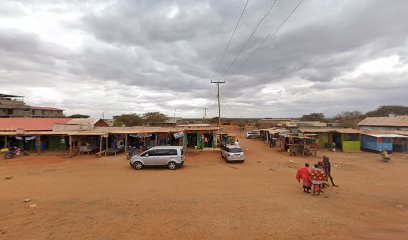
Conquer the Heights: Uhuru Peak
Discover the breathtaking beauty and adventure of Uhuru Peak, the highest summit of Mount Kilimanjaro in Tanzania, a must-visit for thrill-seeking travelers.
Uhuru Peak, the highest summit of Mount Kilimanjaro, is a breathtaking mountain peak located in Tanzania. Known for its stunning views and challenging ascent, it attracts adventurous tourists from around the globe. The journey to the summit is a thrilling experience, offering diverse landscapes and a unique chance to witness the beauty of nature at its finest.
A brief summary to Uhuru Peak
- TZ
Local tips
- Book your trek in advance to secure your preferred route and guide.
- Consider acclimatization days to prevent altitude sickness.
- Pack layered clothing to adjust to changing temperatures on the mountain.
- Hydrate often and eat well to maintain energy during the climb.
- Respect the local culture and environment during your trek.
Getting There
-
Car
If you are driving to Uhuru Peak, start from Moshi, which is a common base for climbers. Head southwest on Boma Road, which will merge into the A23 highway. Continue on the A23 until you reach the Machame Gate entrance to Kilimanjaro National Park. This is where you will need to pay the park entrance fee, which can range from $70 to $100 depending on the season and your nationality. After entering the park, follow the signs to the Machame Route trailhead. Note that you will require a guide and a porter for your climb, which can be arranged in advance through local tour companies. The drive from Moshi to Machame Gate takes approximately 1 hour.
-
Public Transportation
To reach Uhuru Peak using public transportation, take a dala-dala (shared minibus) from Moshi to Machame village. The fare is usually around $2. Once in Machame, you will need to hire a local guide and porters to assist you on your trek. Guide services can be arranged in advance or upon your arrival in Machame. After securing your guide, head to the Machame Gate, which is approximately a 30-minute hike from the village. At the gate, you will need to pay the park entrance fee, which is between $70 to $100. From here, you can start your ascent towards Uhuru Peak via the Machame Route.
-
Trekking
Once you reach the Machame Gate, the trek to Uhuru Peak typically takes 6 to 7 days, depending on your chosen route and acclimatization plan. Follow the established trails, guided by your local guide. You will pass through various camps such as Machame Camp, Shira Camp, Barranco Camp, and others, before reaching the summit. Be sure to carry sufficient supplies, including water, snacks, and warm clothing, as temperatures can drop significantly. It's essential to stay hydrated and pace yourself during the trek to ensure a successful summit attempt.
Discover more about Uhuru Peak
Iconic landmarks you can’t miss
Kilimanjaro Highest Place
1.1 km
Explore Kilimanjaro Highest Place, an iconic mountain cabin on Africa's tallest peak offering breathtaking views and unique cultural experiences.
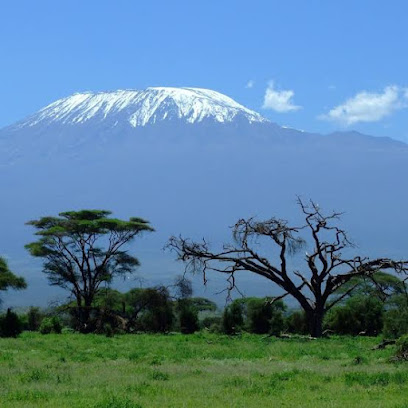
Kibo Huts
4.6 km
Experience the warmth and comfort of Kibo Huts, the perfect indoor lodging for climbers on their journey to the majestic Mount Kilimanjaro.
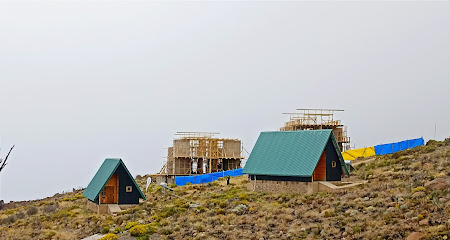
Karanga Camp
5.1 km
Experience the beauty of Karanga Camp on the Mweka Trail, your serene retreat with stunning views of Mount Kilimanjaro.
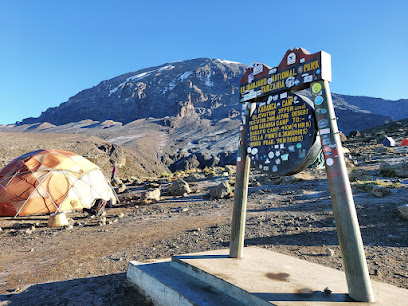
Machame Camp
9.8 km
Experience the beauty of Tanzania at Machame Camp, a serene gateway for adventurers heading to Kilimanjaro, surrounded by lush rainforests and stunning landscapes.
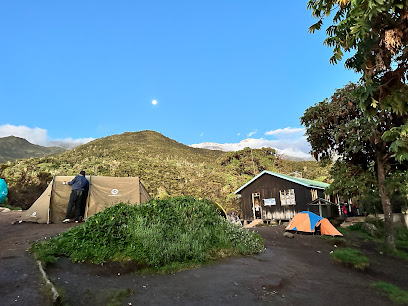
Tranquil Kilimanjaro
21.4 km
Explore the breathtaking landscapes of Mount Kilimanjaro with Tranquil Kilimanjaro, your ultimate guide to unforgettable trekking adventures in Tanzania.
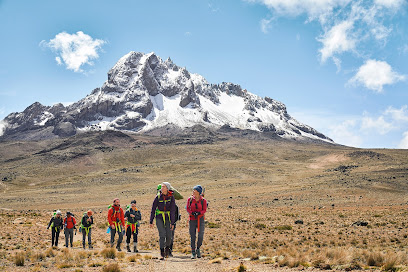
Shimbwe Meadows - Guest House in Kilimanjaro
21.5 km
Experience the serene beauty of Kilimanjaro at Shimbwe Meadows - a perfect blend of comfort and adventure in Tanzania's stunning landscapes.
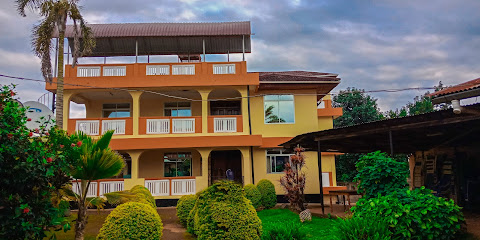
Kibo Slopes Cottages Ltd
23.9 km
Experience the beauty of Kenya at Kibo Slopes Cottages, where adventure meets relaxation against the backdrop of Mount Kilimanjaro.
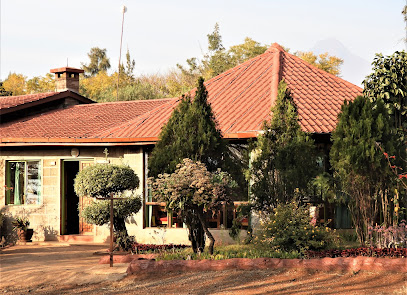
Mount Kilimanjaro 360 View Cottages
26.3 km
Discover breathtaking views and local charm at Mount Kilimanjaro 360 View Cottages, your perfect base for exploring Tanzania's stunning landscapes.
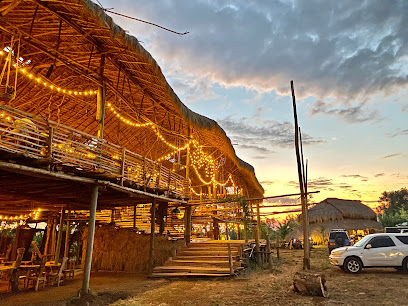
KILIMANJARO WHITE HOUSE HOTEL - Best 4-Star hotel with Mount Kilimanjaro view| Luxury| Budget hotels in Moshi Tanzania
27.0 km
Experience the breathtaking views of Mount Kilimanjaro at the Kilimanjaro White House Hotel, offering diverse accommodations for every traveler in Moshi, Tanzania.
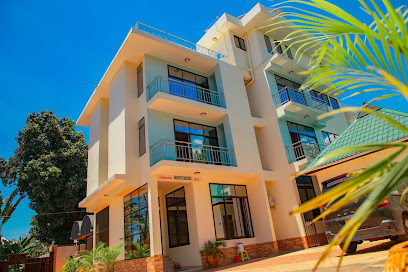
Macpace Tours & Safaris Ltd: Best African Safari Tour Company in Tanzania & Kilimanjaro Climbing Tour operator in Moshi
28.5 km
Discover Tanzania's beauty with Macpace Tours & Safaris Ltd, the premier tour operator for unforgettable safaris and Kilimanjaro climbing experiences.
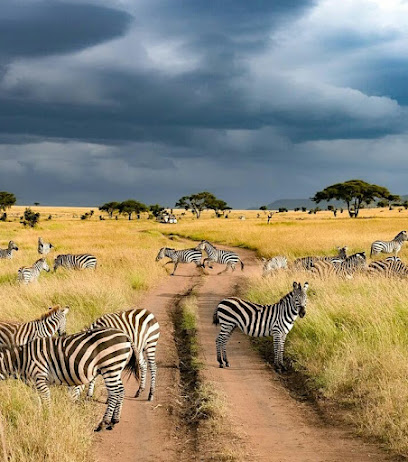
Kilimanjaro Destinations
28.6 km
Explore Tanzania's rich landscapes and cultures with Kilimanjaro Destinations, your expert travel partner for unforgettable adventures.
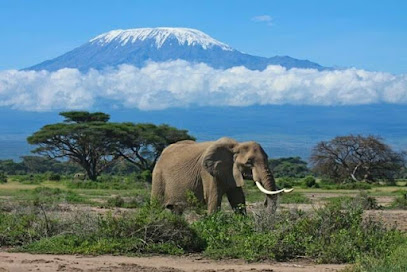
Scavengers Adventures
28.6 km
Discover Tanzania's breathtaking landscapes and rich culture with personalized tours from Scavengers Adventures in Moshi.
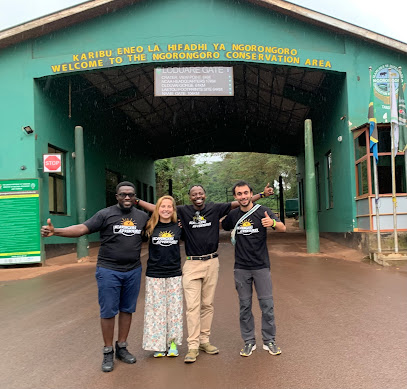
Kilimanjaro Luxury Camp
28.7 km
Discover the ultimate blend of luxury and nature at Kilimanjaro Luxury Camp, where breathtaking views of Mount Kilimanjaro await.
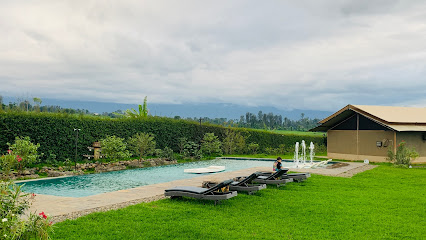
Elerai Camp
28.8 km
Experience the breathtaking beauty of Amboseli at Elerai Camp, where luxury meets nature, and adventure awaits at the foot of Mount Kilimanjaro.

Moshi Clock Tower
29.1 km
Explore the Moshi Clock Tower, a historical landmark that captures the charm and vibrant culture of Moshi, Tanzania, in the shadow of Kilimanjaro.
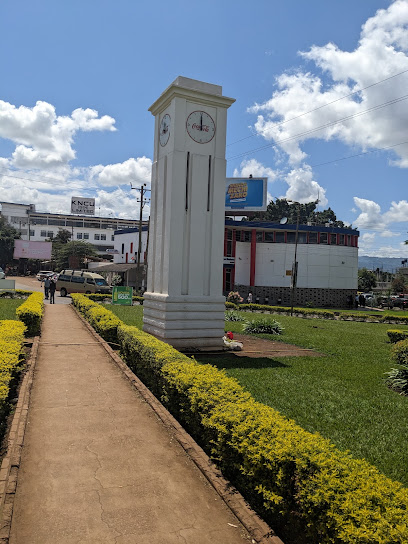
Unmissable attractions to see
Mt Kilimanjaro
0.6 km
Explore the breathtaking beauty of Mt. Kilimanjaro, Africa's highest peak, and embark on an unforgettable trekking adventure through diverse ecosystems.
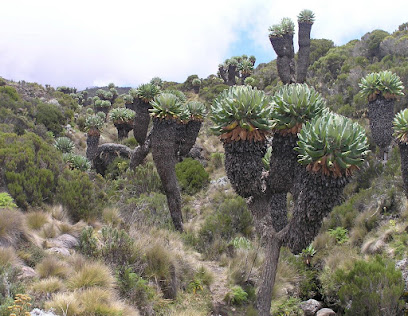
Materuni
0.6 km
Discover the breathtaking beauty and cultural richness of Materuni, a must-visit tourist attraction near Gilman's Point in Tanzania.

Килиманджаро
0.6 km
Explore the majestic beauty of Kilimanjaro, Africa's highest peak, where thrilling hikes meet breathtaking landscapes and unforgettable adventures await.

Kilimanjaro Summit
1.2 km
Experience the breathtaking beauty and adventure of Kilimanjaro Summit, Africa's highest peak, where unforgettable memories await every adventurer.
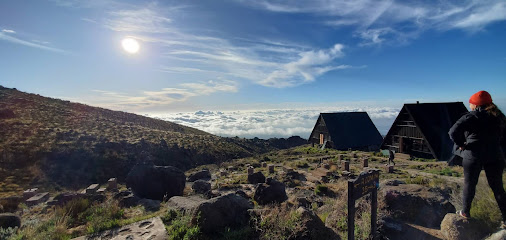
Uhuru Peak
1.2 km
Experience the majestic Uhuru Peak, a pinnacle of adventure in Tanzania, where breathtaking views and unforgettable journeys await every climber.
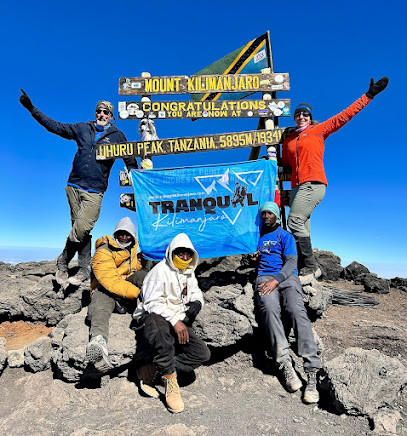
Stella Point
1.9 km
Experience the breathtaking views and emotional journey at Stella Point on Kilimanjaro, a must-visit destination for adventurous travelers.
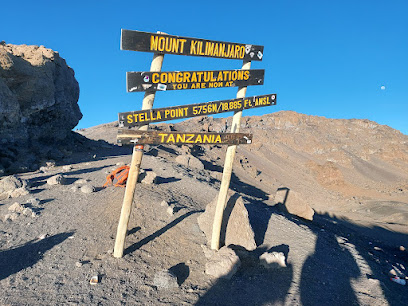
Mount Kilimanjaro National Park
2.1 km
Discover the breathtaking landscapes and diverse wildlife of Mount Kilimanjaro National Park, an iconic UNESCO World Heritage site in Tanzania.
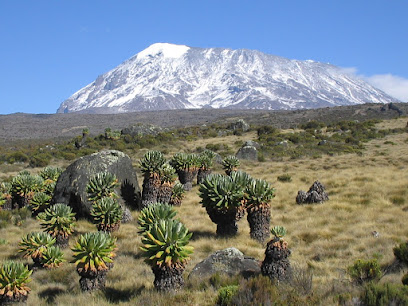
Baranco Camp
3.9 km
Discover the breathtaking beauty of Baranco Camp, a premier camping destination with stunning views of Mount Kilimanjaro.
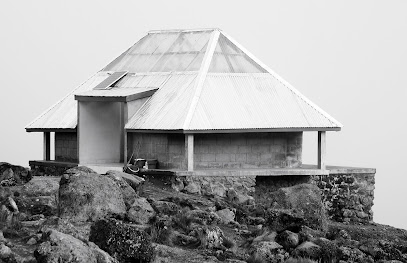
Barranco Wall
4.0 km
Explore the breathtaking Barranco Wall on Mount Kilimanjaro, an iconic hiking area offering stunning views and a thrilling adventure for all trek enthusiasts.
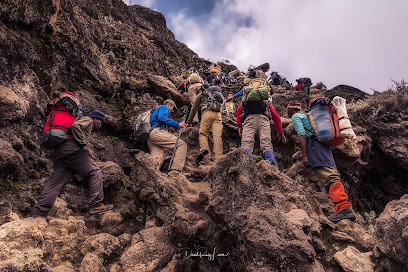
Barafu Camp
4.7 km
Experience the breathtaking beauty and adventure of Barafu Camp, the ultimate stop for climbers on Kilimanjaro's majestic slopes.
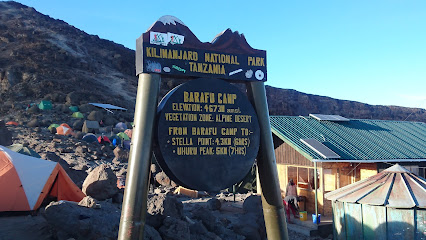
Cathedral Point
11.9 km
Discover the breathtaking beauty of Cathedral Point in Mount Kilimanjaro National Park, a premier hiking destination with stunning views and diverse ecosystems.
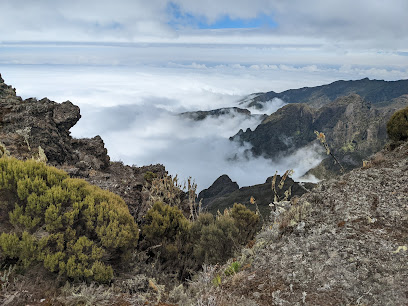
Lemosho Rte
14.1 km
Experience the breathtaking beauty of the Lemosho Route, a scenic trek to Kilimanjaro's summit surrounded by diverse ecosystems and rich culture.
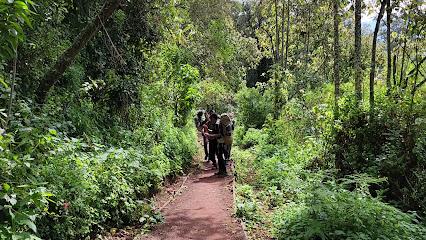
Umbwe Gate
15.8 km
Explore the enchanting Umbwe Gate, the serene starting point for your Kilimanjaro adventure, rich in wildlife and breathtaking landscapes.

Rongai Gate
16.8 km
Explore the breathtaking landscapes and rich cultural heritage at Rongai Gate, a premier tourist attraction in Tanzania.
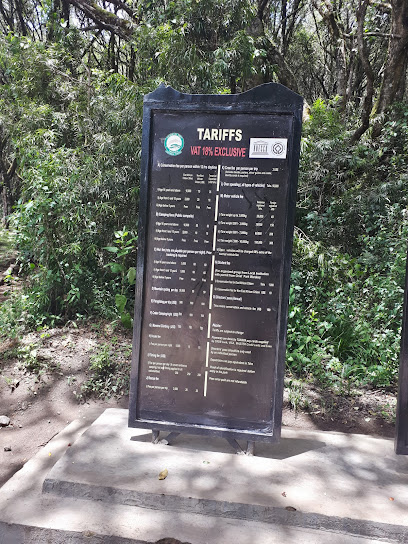
Machame Gate - Mount Kilimanjaro
17.2 km
Experience the thrill of trekking through lush forests and scenic landscapes at Machame Gate, the gateway to Africa's highest peak, Mount Kilimanjaro.

Essential places to dine
ELATIA HOTEL
23.5 km
Experience authentic Kenyan cuisine at Elatia Hotel in Oloitokitok - where culinary excellence meets local charm.

Kilmasu Hiking & Coffee
23.7 km
Explore scenic hiking trails and savor exquisite local coffee at Kilmasu Hiking & Coffee in beautiful Namro, Tanzania.
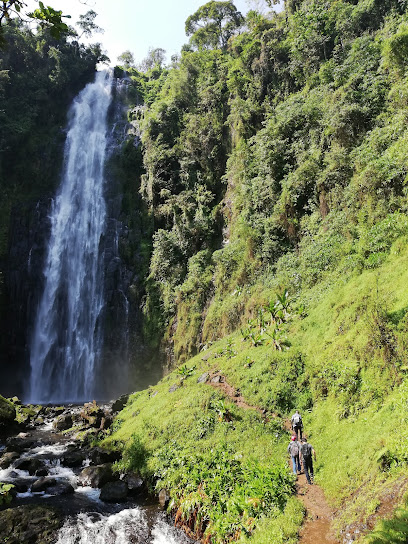
Osotua plaza
23.7 km
Experience the vibrant flavors of Kenya at Osotua Plaza in Oloitokitok - where local cuisine meets an inviting atmosphere.
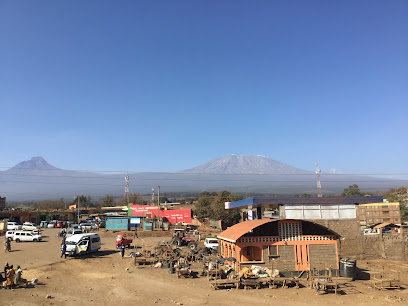
Tarakea Resort Inn
25.0 km
Discover authentic Tanzanian cuisine at Tarakea Resort Inn, where flavor meets hospitality in a picturesque setting.
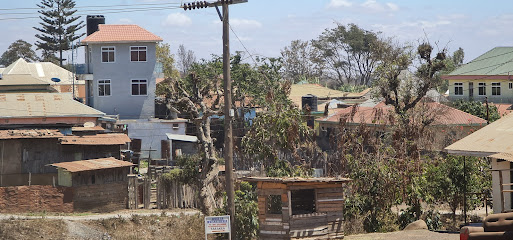
Giraffe '97' Bar & G-House
28.4 km
Discover authentic Tanzanian cuisine at Giraffe '97' Bar & G-House in Majengo, where local flavors meet vibrant culture.
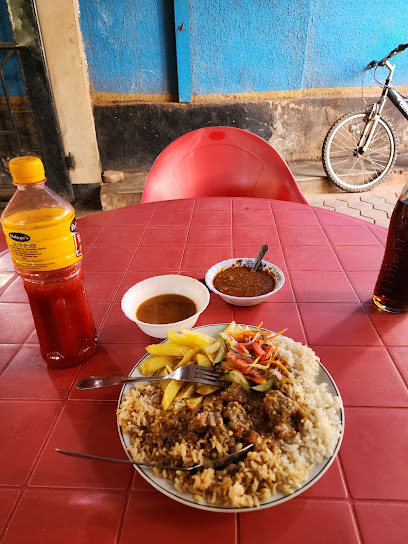
Best Bite
28.4 km
Discover the vibrant culinary scene at Best Bite in Majengo – where local flavors meet international cuisine in a welcoming atmosphere.
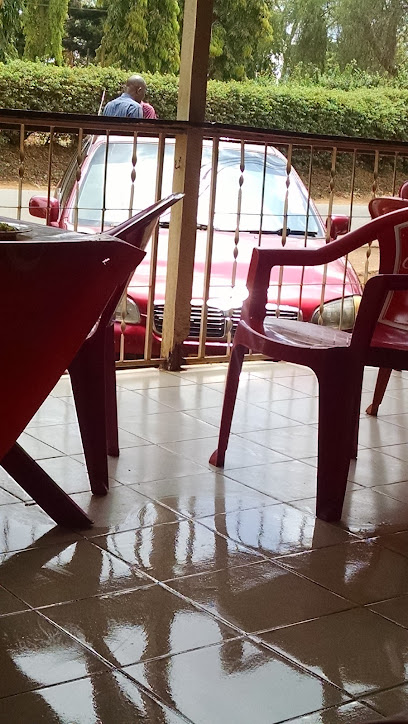
Straight at the Jungle
28.7 km
Savor authentic Jamaican dishes in Rau's vibrant eatery, Straight at the Jungle - where Caribbean flavors meet Tanzanian hospitality.

@sekela.point
28.7 km
Experience flavorful grilled delights at Sekela Point - New Vegas' ultimate sports bar destination.

Mimi's Tavern
28.8 km
Discover authentic Tanzanian cuisine at Mimi's Tavern in Shanty Town - where every meal tells a story!

El Rancho Kilimanjaro Restaurant
29.1 km
Discover the rich flavors of India at El Rancho Kilimanjaro Restaurant in Moshi - a must-visit dining destination for every traveler.
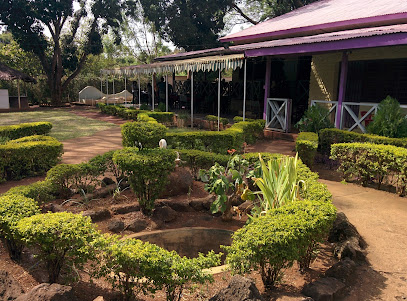
More Than A Drop
29.5 km
Experience authentic Tanzanian cuisine at More Than A Drop in Moshi - where dining meets hospitality education.
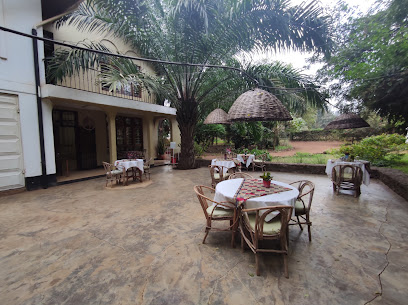
Shirikisha the Garden
29.8 km
Experience authentic Tanzanian cuisine amidst lush greenery at Shirikisha the Garden in Majengo.
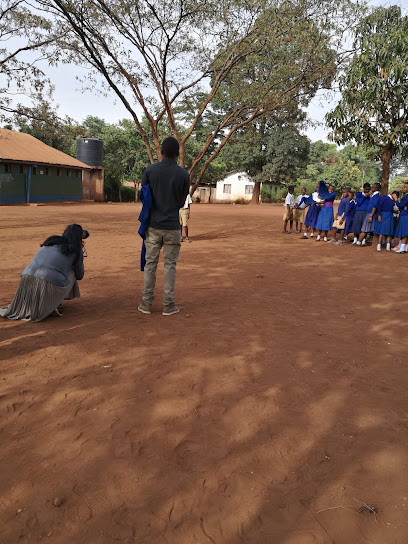
Chopstixs
29.8 km
Discover authentic Chinese cuisine at Chopstixs in Moshi's Shanty Town—where every dish tells a story.
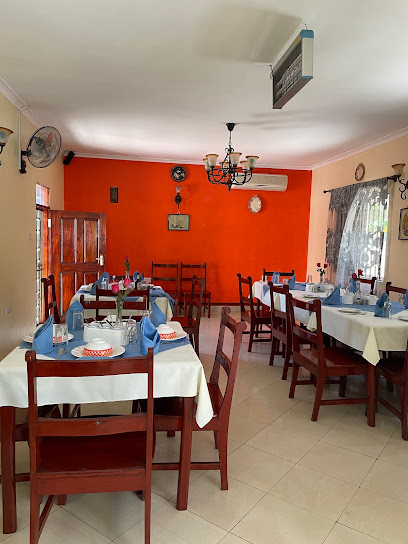
Kilimanjaro Restaurant
29.9 km
Discover authentic Tanzanian flavors at Kilimanjaro Restaurant in Moshi's vibrant Shanty Town - a culinary journey awaits.
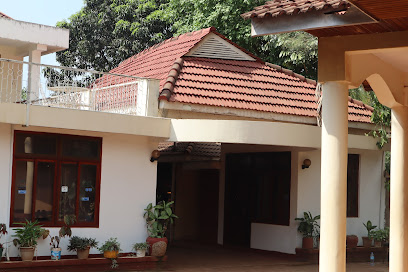
KOWERO Food Restaurant
30.0 km
Discover nutritious dining at KOWERO Food Restaurant in Kilimanjaro - where health meets flavor amidst breathtaking scenery.

Markets, malls and hidden boutiques
Kijiji Curio Mweka Kilimanjaro
17.8 km
Explore Kijiji Curio Mweka Kilimanjaro for authentic Tanzanian gifts and souvenirs, each telling a story of local culture and craftsmanship.

Vijiji Gallery & Restaurant
17.8 km
Experience the vibrant culture of Tanzania at Vijiji Gallery & Restaurant, where art meets culinary excellence in a delightful setting.

Muembini Shop
18.7 km
Discover the essence of local shopping at Muembini Shop in Machame Kaskazini – a treasure trove of handcrafted goods and Tanzanian culture.
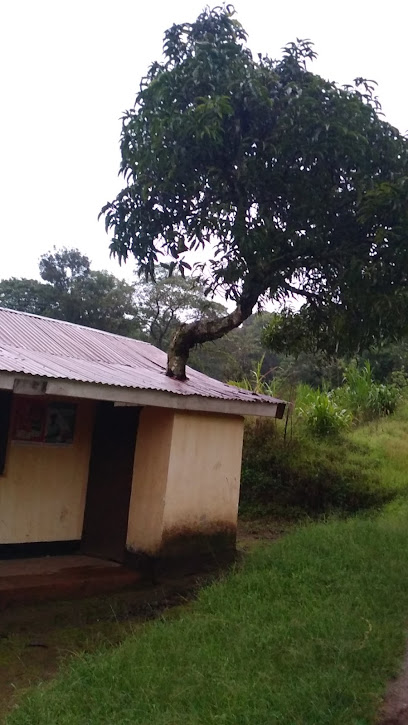
Kijiweni
21.0 km
Discover the essence of Tanzanian culture at Kijiweni, a charming general store in Lyamungo offering unique local goods and warm hospitality.

Volcano Discovery Tours - Mount Kilimanjaro
21.1 km
Discover the breathtaking beauty and adventure of Mount Kilimanjaro, Africa's highest peak, surrounded by diverse wildlife and rich cultural heritage.
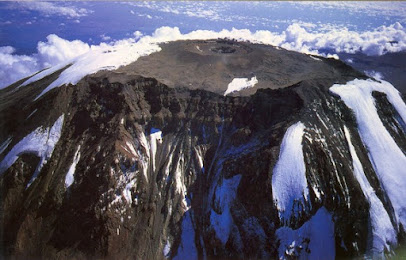
Mlimani Park
21.3 km
Discover the beauty and tranquility of Mlimani Park in Kibosho Magharibi, Tanzania, where nature meets serenity in a breathtaking landscape.
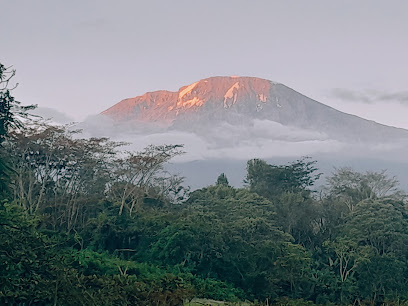
NDENG'ASO SHOP
23.1 km
Explore NDENG'ASO SHOP in Kikelelwa for unique home goods reflecting Tanzanian culture and craftsmanship.
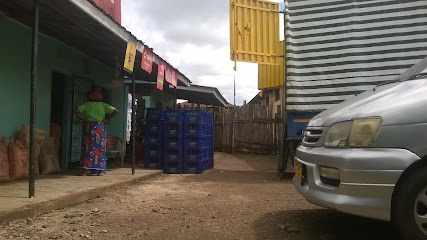
LOKORO KIKELELWA
23.1 km
Discover Lokoro Kikelelwa, a charming home goods store in Tanzania showcasing local craftsmanship and unique items for the discerning traveler.

MLokole Shop
23.2 km
Discover the essence of Kikelelwa at MLokole Shop, where local craftsmanship meets vibrant culture in unique souvenirs.

Esoit Stationers, Bookshop and Textiles
23.3 km
Discover Esoit Stationers in Oloitokitok, where the love for books meets the vibrant textile arts of Kenya, creating a unique cultural experience.

Nosim Clothing
23.4 km
Discover authentic Kenyan fashion at Nosim Clothing in Oloitokitok, where local craftsmanship meets vibrant styles for every traveler.
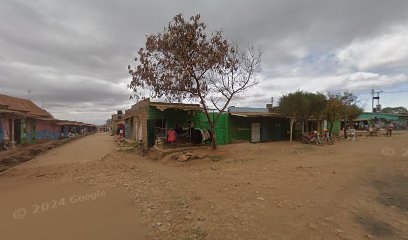
Best Mommie Collection
23.4 km
Explore the vibrant fashion scene at Best Mommie Collection in Oloitokitok, offering unique clothing and local craftsmanship.
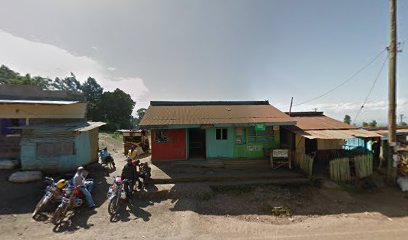
Kwa Alfonsi
23.4 km
Explore Kwa Alfonsi in Namro for unique souvenirs, local crafts, and a taste of Tanzanian culture in a charming shopping destination.
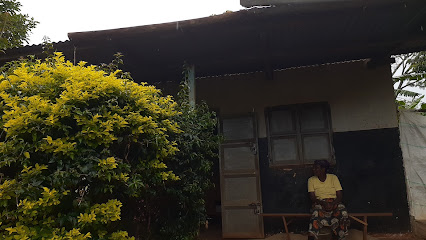
Mbovas Estate
23.4 km
Explore Mbovas Estate in Oloitokitok for a vibrant shopping experience filled with local culture, dining, and entertainment options.
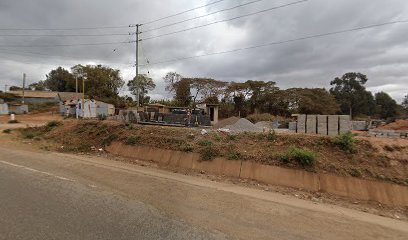
Kaunda's Emanyatta Village Market
23.4 km
Explore the vibrant Kaunda's Emanyatta Village Market for unique souvenirs and a taste of authentic Kenyan culture in Oloitokitok.
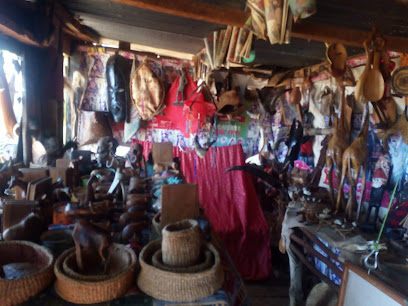
Essential bars & hidden hideouts
Corner Pub
20.7 km
Discover Corner Pub, a cozy grill in Kilimanjaro serving delicious local and international cuisine in a warm atmosphere.

Mkange Pork & Bar
22.9 km
Discover the vibrant culture and authentic flavors of Tanzania at Mkange Pork & Bar, where local hospitality meets delicious cuisine.

Molangi Bar
22.9 km
Discover the Vibrant Local Culture at Molangi Bar - Enjoy Refreshing Drinks in the Heart of Tanzania.
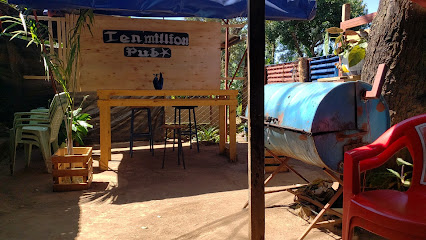
Mama Toro Bar & Lodge
23.1 km
Discover the vibrant atmosphere and local flavors at Mama Toro Bar & Lodge in Kikelelwa, a must-visit for every traveler.

Rockvilla pub
23.5 km
Discover the vibrant spirit of Oloitokitok at Rockvilla Pub, a local bar offering a unique blend of culture, relaxation, and fun.
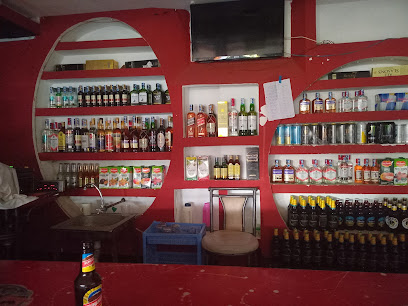
Safari Garden
24.4 km
Discover the vibrant atmosphere of Safari Garden, a lively bar in Kenya, perfect for unwinding with friends and enjoying a variety of beverages.
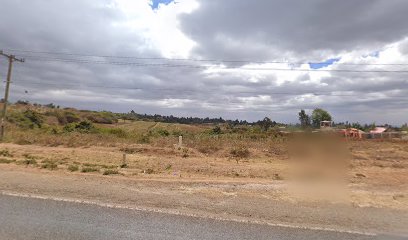
Kibo Bar Restaurant
24.8 km
Experience the vibrant atmosphere and delightful Tanzanian cuisine at Kibo Bar Restaurant in Tarakea, the gem of local dining.
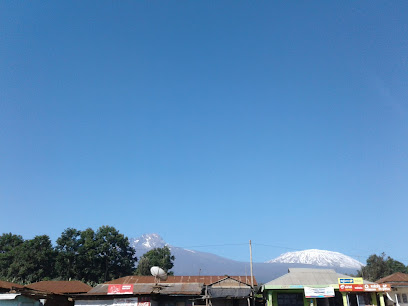
Mile 6
24.9 km
Discover the lively atmosphere and refreshing drinks at Mile 6, Tarakea's top bar for tourists seeking relaxation and local culture.

Flower Bar and Lodge
24.9 km
Discover the lively atmosphere of Flower Bar and Lodge in Junction, where local flavors and vibrant culture come together for an unforgettable experience.
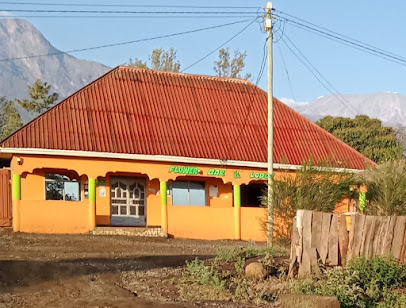
Masai club
25.0 km
Discover the vibrant nightlife of Tarakea at Masai Club, where music, dance, and culture come together for an unforgettable experience.

Makutano Bar
26.2 km
Discover the vibrant nightlife at Makutano Bar in Majengo, Tanzania - a local gem for drinks, laughter, and unforgettable memories.
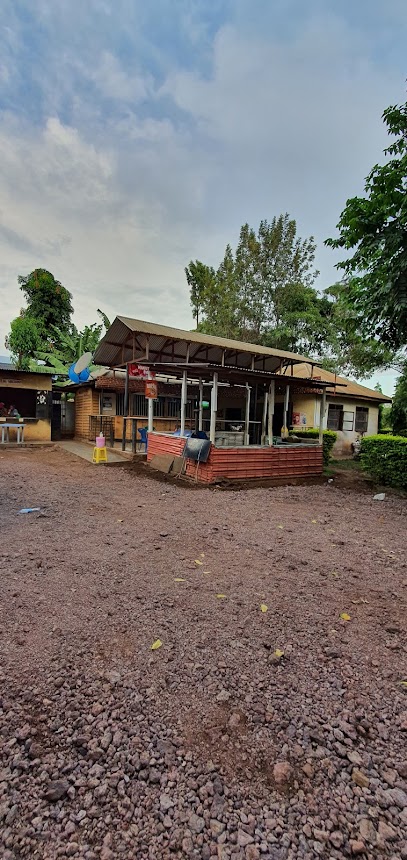
Small bar
27.0 km
Experience the local vibe at Small Bar in Kiboriloni, where refreshing drinks and friendly faces await you in a vibrant atmosphere.

Maisha Bistro Bar
27.7 km
Experience the vibrant nightlife of Kibomu at Maisha Bistro Bar, where local flavors and live music create unforgettable moments.
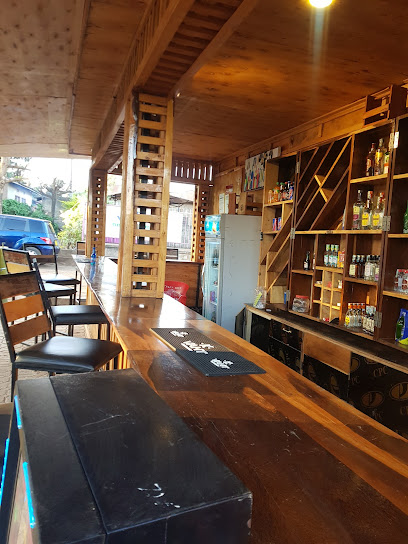
The tree club
27.9 km
Savor authentic Tanzanian flavors at The Tree Club, a vibrant grill sanctuary in Majengo, perfect for a memorable dining experience.
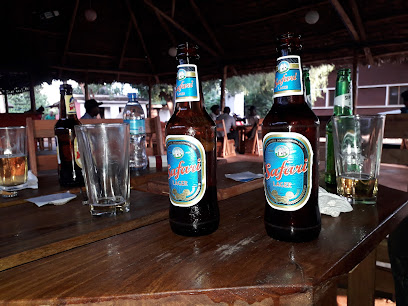
Amboseli cultural camp
28.1 km
Experience the essence of Kenyan culture at Amboseli Cultural Camp, where tradition meets tranquility in the heart of Oloitokitok.
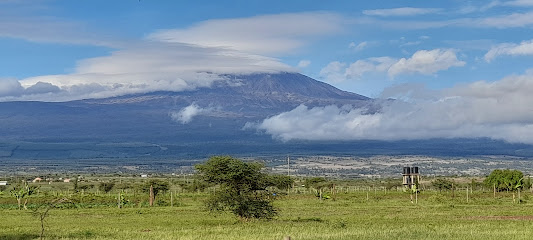
Nightclubs & after hour spots
Club Bent Elbow Oloitoktok
23.4 km
Discover the lively nightlife at Club Bent Elbow in Oloitoktok, a vibrant bar offering local drinks and entertainment under the Kenyan stars.

MASHUA'S CHARLIES LOUNGE (Club Mashuas)
23.6 km
Immerse yourself in the lively ambiance of Mashua's Charlie's Lounge, the ultimate night club experience in Oloitokitok, Kenya.
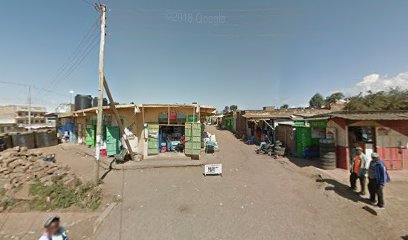
MAKUTI CLUB
23.8 km
Discover the lively nightlife at Makuti Club in Oloitokitok, where vibrant music and a welcoming atmosphere await every visitor.

Wooden garden in Moshi
28.9 km
Discover tranquility at the Wooden Garden in Moshi, where nature meets comfort for a unique lounge experience.
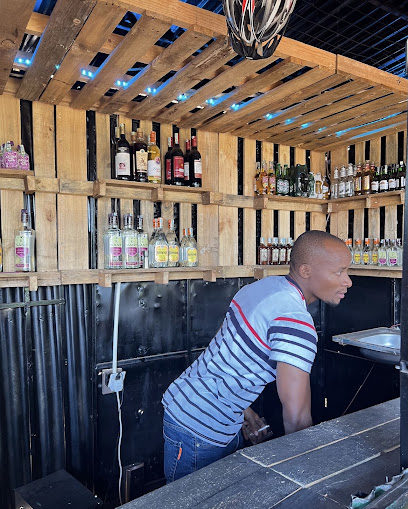
Minja's Lounge
30.3 km
Discover the vibrant nightlife at Minja's Lounge in Shanty Town, where great drinks, music, and an energetic atmosphere await you.
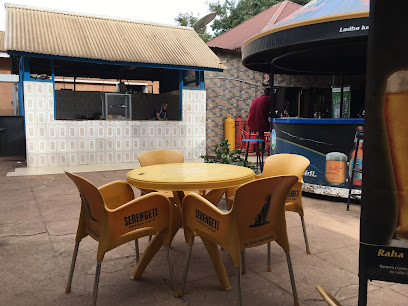
Peter's Club
30.4 km
Discover the vibrant nightlife at Peter's Club in Mfumuni, where great drinks and an energetic atmosphere await every visitor.
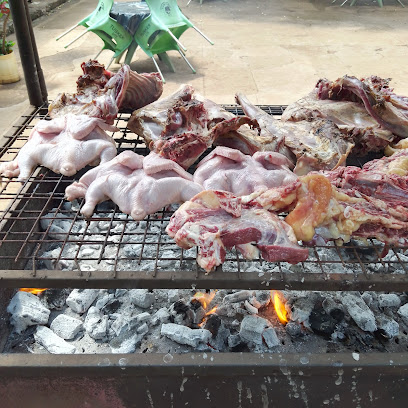
AMIGOZ LOUNGE
30.4 km
Discover the vibrant ambiance of Amigoz Lounge in Majengo – a perfect spot for relaxation and socializing with locals and fellow travelers.

Malindi tonight
31.2 km
Discover the electrifying ambiance of Malindi Tonight, the ultimate night club in Shanty Town, promising unforgettable nights of music and dance.

Night Club "Red Stone"
31.2 km
Discover the electrifying nightlife at Night Club Red Stone, where music and dance create unforgettable memories in the heart of the city.
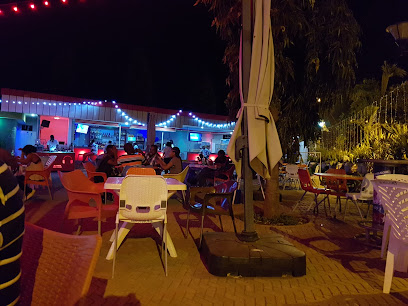
Moshi Central Club
31.3 km
Discover the rhythm of Moshi at Moshi Central Club, a lively bar where culture, music, and socializing come together for an unforgettable night out.

The Golden view park
31.4 km
Immerse yourself in the vibrant Tanzanian nightlife at The Golden View Park, where music, dance, and culture come alive in A23.
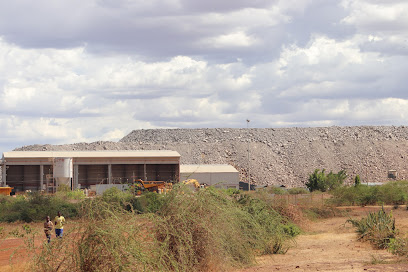
Digital lounge kimana
36.2 km
Discover the lively Digital Lounge Kimana, where vibrant nightlife, great drinks, and unforgettable experiences await in the heart of Kimana.
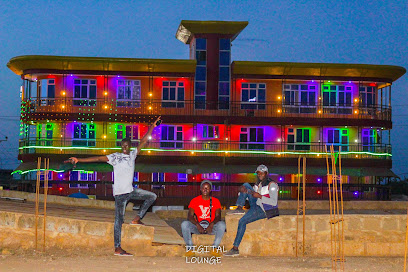
cool breeze club
36.4 km
Experience the vibrant nightlife at Cool Breeze Club in Kenya, a premier destination for dancing, music, and unforgettable moments.
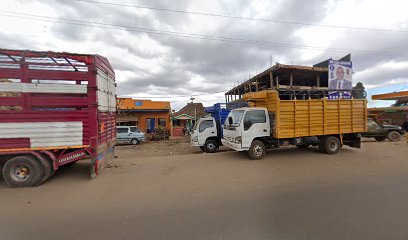
Club D World Garden
77.4 km
Unleash your night at Club D World Garden, Arusha's lively nightlife hub with electrifying music and a vibrant atmosphere.

Sansiro club
77.5 km
Dive into the electrifying nightlife of Sansiro Club, where vibrant music and an energetic atmosphere create an unforgettable experience in Kenya.
